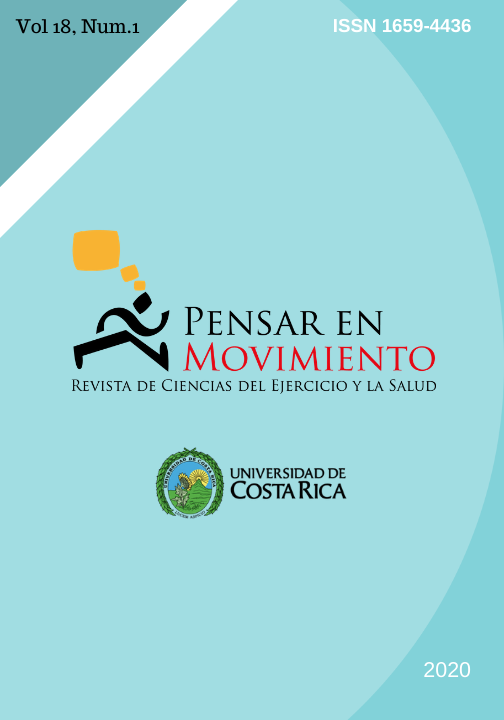Abstract
Aburto-Corona, J. & Aragón-Vargas, L.F. (2017). Refining music tempo for an ergogenic effect on stationary cycling exercise. Pensar en Movimiento: Revista de Ciencias del Ejercicio y la Salud, 15(2), 1-12. The effect of music on exercise performance has been studied from many perspectives, but the results have not been as clear as expected, probably due to a lack of appropriate controls. The purpose of this study was to measure stationary cycling performance in a warm environment under carefully controlled conditions, modifying only the presence of music and its tempo. Ten physically active students, 24.5±3.6 years (mean±SD) selected their favorite exercise music and performed a maximum cycling test. During subsequent visits to the laboratory, they pedaled at their preferred speed against a constant resistance (70% of maximum) in an environmentally controlled chamber (28.6±0.5 °C db and 65±3% rh) for 30 min, on three different days, without music (NM), medium tempo music (MT-120 bpm) or fast tempo music (FT-140 bpm), in random order. Perceived exertion (PE), heart rate (HR) and total work performed (W) were recorded. There was no significant difference among conditions for PE (4.47±1.52; 4.22±1.5; 3.83±2.06 a.u. for NM, MT and FT, respectively, p=.162) or HR (142.4±24.53; 142.6±24.37; 142.9±18.36 bpm for NM, MT and FT, respectively, p=.994), but W was different (43.4±19.02; 46.1±20.34; 47.1±20.97, kJ for NM, MT and FT, respectively, p=.009); post-hoc analysis showed that the W difference was only between FT and NM. Using individually selected preferred music in a carefully controlled environment, participants improved their spontaneous cycling performance only when the music had a fast tempo of 140 bpm.
References
Aburto Corona, J. & Aragón Vargas, L. (2017). REFINING MUSIC TEMPO FOR AN ERGOGENIC EFFECT ON STATIONARY CYCLING EXERCISE. Pensar en Movimiento: Revista de Ciencias del Ejercicio y la Salud, 15(2), e28390. https://doi.org/10.15517/pensarmov.v15i2.28390







